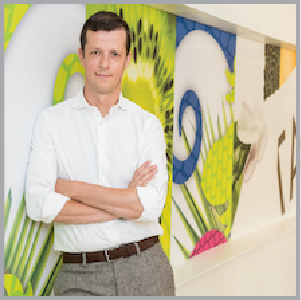As we thought about this month’s Signal360 theme, the future of work, one of our biggest questions was: What are the world’s biggest brands thinking about what happens next? How have their views changed on work, what are their plans, and what have they learned in the past year?
Some of the big tech companies have been very vocal about this since last summer. Google has said that when employees begin to return to the office in the fall, it will test out a “hybrid” model that is emerging as a common approach for many companies: three days in the office, two at home. Facebook hired a “director of remote work” with plans to keep much of WFH in place. And Dropbox, not to be outdone, declared it would lead with work from anywhere, becoming a “virtual first” company.
Not all companies are ready to embrace a version of our WFH year. Last month, Goldman Sachs CEO David Solomon said that it has been “an aberration that we’re going to correct as quickly as possible.”
But perhaps not surprisingly in this up and down time, many other companies are still trying to figure it out, or aren’t ready yet to talk about their views or plans until they’ve shared them with their employees.
The companies below offer a glimpse into the emerging thinking around the future of work. One thing is clear: Companies care more than ever about the emotional and psychological well-being of their employees and will be configuring their plans with that top of mind.
Well-Being & Resilience Are Corporate Interests
 Sergio Ezama, SVP and Chief Talent Officer, PepsiCo: PepsiCo has provided a number of mental, emotional and physical well-being resources and benefits, from free counseling sessions to on-demand fitness classes, to help our associates manage all the stressors that have been exacerbated due to the pandemic. We’ll feel the effects of this time even when we return to the office, so it will be critical to continue providing resources and tools for associates to feel supported.
Sergio Ezama, SVP and Chief Talent Officer, PepsiCo: PepsiCo has provided a number of mental, emotional and physical well-being resources and benefits, from free counseling sessions to on-demand fitness classes, to help our associates manage all the stressors that have been exacerbated due to the pandemic. We’ll feel the effects of this time even when we return to the office, so it will be critical to continue providing resources and tools for associates to feel supported.
 Michael Alicea, Chief People Officer, NielsenIQ: Empathy and the importance of personal relationships need to transition to the digital space. Managers need to be conscious about staying away from transactional relationships and exhibiting inclusive leadership skills. Intentional usage of technology to build communities and collaborate, versus just using technology to exchange information, is crucial.
Michael Alicea, Chief People Officer, NielsenIQ: Empathy and the importance of personal relationships need to transition to the digital space. Managers need to be conscious about staying away from transactional relationships and exhibiting inclusive leadership skills. Intentional usage of technology to build communities and collaborate, versus just using technology to exchange information, is crucial.
 Francine Katsoudas, Executive Vice President & Chief People Officer, Cisco: If we get teams right, we win – When we foster dynamic, successful teams that collaborate and perform, our business, people, and communities all benefit. The importance of having teams that bond us to one another and push our work forward will be even more critical in the hybrid model of work ahead. But to do this right, we have to have the right leaders who can engender a culture of transparency, are comfortable with risk, and can build trust in the face of uncertainty. (Read more.)
Francine Katsoudas, Executive Vice President & Chief People Officer, Cisco: If we get teams right, we win – When we foster dynamic, successful teams that collaborate and perform, our business, people, and communities all benefit. The importance of having teams that bond us to one another and push our work forward will be even more critical in the hybrid model of work ahead. But to do this right, we have to have the right leaders who can engender a culture of transparency, are comfortable with risk, and can build trust in the face of uncertainty. (Read more.)
 Dan Spaulding, Chief People Officer, Zillow: We have historically discouraged employees from working from home, preferring face time and in-office collaboration versus virtual exchanges. Our old preferences have been debunked during the pandemic. These past few months have shed light on the resilience of Zillow employees; their unflagging drive and commitment to innovate and serve our customers and partners at the highest levels, regardless of changing work conditions. It’s been incredibly gratifying to see our community’s rapid and widespread adaptation to this new work reality. We have all learned the true importance of home. (Read more.)
Dan Spaulding, Chief People Officer, Zillow: We have historically discouraged employees from working from home, preferring face time and in-office collaboration versus virtual exchanges. Our old preferences have been debunked during the pandemic. These past few months have shed light on the resilience of Zillow employees; their unflagging drive and commitment to innovate and serve our customers and partners at the highest levels, regardless of changing work conditions. It’s been incredibly gratifying to see our community’s rapid and widespread adaptation to this new work reality. We have all learned the true importance of home. (Read more.)
Working Together Won’t Always Mean Physically Together
 Susan Lyon, SVP Human Resources, Fabric & Home Care, Procter & Gamble: To me, the key to the future of the workplace needs to revolve around helping teams make the greatest impact, and as a result, the individual also benefits from the flexibility. By ensuring teams adjust their team processes based on the new workplace realities, the business will move forward and strengthen.
Susan Lyon, SVP Human Resources, Fabric & Home Care, Procter & Gamble: To me, the key to the future of the workplace needs to revolve around helping teams make the greatest impact, and as a result, the individual also benefits from the flexibility. By ensuring teams adjust their team processes based on the new workplace realities, the business will move forward and strengthen.
 Brent Hyder, President and Chief People Officer, Salesforce: We’ll be redesigning our workspaces over time as community hubs to accommodate a more hybrid workstyle. Gone are the days of a sea of desks — we’ll create more collaboration and breakout spaces to foster the human connection that can’t be replicated remotely. (Read more.)
Brent Hyder, President and Chief People Officer, Salesforce: We’ll be redesigning our workspaces over time as community hubs to accommodate a more hybrid workstyle. Gone are the days of a sea of desks — we’ll create more collaboration and breakout spaces to foster the human connection that can’t be replicated remotely. (Read more.)
 Eric Artz, Chief Executive Officer, REI: Remote working will move from a temporary solve to a more engrained, supported, and normalized model for many of our headquarters employees. And while our home will remain in Seattle, it will be more feasible for more of our headquarters employees to have the flexibility to live and work outside of the Puget Sound region. This will have immediate, positive impacts on our ability to attract and retain a diverse and highly skilled workforce, as we continue to navigate the impacts of the COVID-19 pandemic and beyond. (Read more.)
Eric Artz, Chief Executive Officer, REI: Remote working will move from a temporary solve to a more engrained, supported, and normalized model for many of our headquarters employees. And while our home will remain in Seattle, it will be more feasible for more of our headquarters employees to have the flexibility to live and work outside of the Puget Sound region. This will have immediate, positive impacts on our ability to attract and retain a diverse and highly skilled workforce, as we continue to navigate the impacts of the COVID-19 pandemic and beyond. (Read more.)
 Leena Nair, Chief Human Resources Officer, Unilever: What I’m hearing louder and louder is people’s desire for greater flexibility, as well as for personal and professional enrichment. We already have a lot of internal training resources in place, from online courses to one-to-one mentoring. Our intention is to ramp these up even more. One of my favourite examples is what we call our Flex Experience program, which allows employees to spend up to 20% of their time in a different job function. (Read more.)
Leena Nair, Chief Human Resources Officer, Unilever: What I’m hearing louder and louder is people’s desire for greater flexibility, as well as for personal and professional enrichment. We already have a lot of internal training resources in place, from online courses to one-to-one mentoring. Our intention is to ramp these up even more. One of my favourite examples is what we call our Flex Experience program, which allows employees to spend up to 20% of their time in a different job function. (Read more.)

